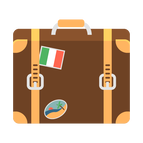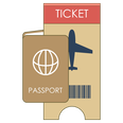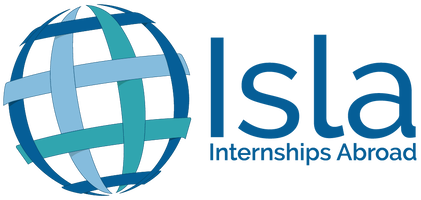Bulgaria, its soul-stirring mountains rival golden beaches on the Black Sea, while cities hum with nightlife, culture, and art. Within Bulgaria's beguiling blend of nature and history unforgettable adventures are guaranteed.*
Tailored Global Development Internships in Bulgaria
Apply today! Click on the following steps to learn how it works....
1. Explore and discover the Options
Research international internship options by first checking out one or more of the following:
Whatever you choose, we will customize an internship just for you! This means we will help you find an internship with one of partner organizations that is a good fit for your particular skill set, background, and interests and also meets the needs of your host organization!
If you are undecided and need more help, no problem! You can still apply! We are available via email at [email protected] or we can get on a Google Meet call with you to guide you through the options and the application and placement process.
- Discover our Isla Destinations
- Browse through our Search Internships listing
- Search internships by clicking on a specific Sector or Career Field
Whatever you choose, we will customize an internship just for you! This means we will help you find an internship with one of partner organizations that is a good fit for your particular skill set, background, and interests and also meets the needs of your host organization!
If you are undecided and need more help, no problem! You can still apply! We are available via email at [email protected] or we can get on a Google Meet call with you to guide you through the options and the application and placement process.
Sectors
Career Fields
2. the online application
- Once you have decided on your destination and internship choice(s), complete the online application and submit the $80 application fee. Send us your university transcripts, your resume (CV), and two letters of reference. Please note that you can save your application and go back to it at any time. It's easy!
- Upon receipt of your application and fee, Isla will give you a call for an interview. We want to learn more about you to ensure the best fit internship placement just for you.
3. The Internship Placement
- An invitation to join Isla will be sent to you with your internship offer. We will also send you your Scope of Work and an internship contract.
- Pre-departure preparations begin with lots of guidance from the Isla team.
- Learn about Isla internship program fees here.
- Paying for your internship? Your university or college most likely offers scholarships and grants specifically to help defray the cost of an international experience, including internships abroad. If you're a student, contact your university's international or education abroad office. They will also help you with the numerous national scholarship programs, such as the Gilman, that offers funding for internship programs like ours. Combining funding sources can make your internship abroad doable and very affordable. Another option is crowdfunding. To learn more go to our Funding Your Internship page.
4. The Isla experience
Gain valuable international work experience, life skills, new friends and colleagues, cultural awareness and sensitivity, and the confidence to help you develop personally and professionally. Isla will provide guidance every step of the way before, during, and after your internship experience! Apply now!
Travel GuidesOfficial Bulgaria Tourism Portal
Lonely Planet Bulgaria Bulgaria In Your Pocket Bradt Travel Guide Bulgaria RoughGuides Bulgaria National Geographic Bulgaria Vertical Divider
|
About Bulgaria & HealthEmbassies in Bulgaria
U.S. Embassy in Bulgaria U.S. State Department - Bulgaria British Embassy in Bulgaria World Health Organization U.S. Center for Disease Control Vertical Divider
|
News & Blogs |
Language, Books, and Movies - Bulgaria
Bulgarian is the official language of Bulgaria and is spoken by the majority of the country's population. In addition, the following languages are spoken by minority populations in Bulgaria.
Bulgarian Language
Bulgarian, the official language of Bulgaria, is an Indo-European and Slavic language written using the Cyrillic alphabet, and is spoken by the majority of the country's population. English is a widely spoken second language in Bulgaria.
Turkish Language
The Turkish language is spoken by the largest minority group in Bulgaria. The Turks arrived in the region from Anatolia during the 14th and early 15th century when the Ottomans conquered the Balkans. Turkish is also spoken by the native Bulgarians whose ancestors converted to Islam during the Ottoman rule in the region.
Romani Language
The Romani language is spoken by the second largest minority group, the Romani people, descendants of the Romani nomadic migrants who arrived in Bulgaria from Northern India towards the end of the 13th century and continued to arrive during five centuries of Ottoman occupation of the region.
Bulgarian Language Guides
Books and movies About or Set in Bulgaria
Books By Peace Corps Bulgaria Volunteers
7 Hours to Sofia: Challenges and Discoveries of a Peace Corps Volunteer (2017), by Louise Mae Hoffmann (BG - PCV - 2009-10),
A Breeze in Bulgaria (2012), by Bruce McDonald (BG -2002–04)
Cold Snap: Bulgaria Stories (2020), by Cynthia Morrison Phoel (BG PCV -1994-96)
Letters from Bulgaria (2006), by Rel Davis (BG PCV - 2001-03)
A Breeze in Bulgaria (2012), by Bruce McDonald (BG -2002–04)
Cold Snap: Bulgaria Stories (2020), by Cynthia Morrison Phoel (BG PCV -1994-96)
Letters from Bulgaria (2006), by Rel Davis (BG PCV - 2001-03)
Flight InformationBulgaria has good air links with numerous European cities, as well as some cities in the Middle East. There are currently no direct flights to Bulgaria from further afield, so visitors from, for example, North America or Australia will need to pick up a connecting flight elsewhere in Europe.
Sofia Airport (www.sofia-airport.bg) is the main point of entry to the country. Varna Airport (www.varna-airport.bg) and Burgas Airport (www.burgas-airport.bg) serve the coast, and are particularly busy during the summer when they are used by charter flights. For central Bulgaria, direct flights from a couple of European cities, including London, reach Plovdiv Airport (www.plovdivairport.com). Vertical Divider
|
Visas and STEPA valid U.S. passport is required for U.S. citizens. Your U.S. passport must be valid for at least three (3) months from the expected date of departure to Bulgaria. U.S. citizens traveling on regular tourist passports may stay in Bulgaria for a total of 90 days within 6 months without a Bulgarian visa. Other citizens should check with Isla and the Bulgarian embassy in your country.
The U.S. Department of State’s Smart Traveler Enrollment Program (STEP) U.S. Embassy strongly recommends that U.S. citizens traveling to or residing in Bulgaria enroll in the STEP program. STEP sends security email updates and makes it easier for the U.S. embassy or nearest U.S. consulate to contact you in an emergency.
|
* from Lonely Planet Bulgaria





